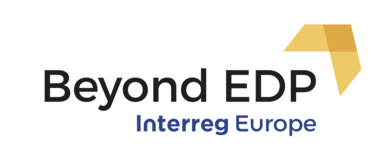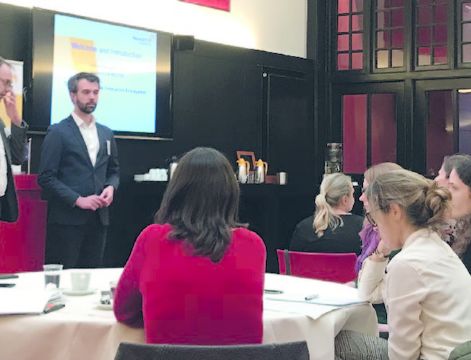On 13 December 2013, the SRI-SI was unanimously adopted in the Centre-Val de Loire by the Regional Council and has been ratified by the State.
This strategy responds to a vision of regional public authorities that aims to:
1. Encourage all types of innovation within companies by strengthening the capacities of research and innovation of the territory.
- Human capacity
- Financial capacity
- Regional research capacity
2. To make the ecological transition an asset for the transformation and strengthening of the industrial fabric
3. To strengthen the attractiveness of our territory by relying on the industrial sectors and tourism with an international influence
4. To increase the number of innovative companies and employment. It is a matter of going from 1000 to 1500 innovative companies between 2014 and 2020.
A particular priority has been given to SMEs and notably designing horizontal financial instruments that can help them adopt new and disruptive technologies. The DPS (RIS3 priorities) associated with some 11 regional Poles/ clusters also form an important ingredient in this policy mix.
In December 2013, the Region has adopted the following five smart specialisation strategy priorities:
- Environmental Engineering and Metrology for High Resource-consuming Activities including environmental monitoring, rehabilitation, drainage and treatment; DPS1
- Biotechnologies and Services for Health and Cosmetic Industries, innovative activities for improved supply chain network among regional actors DPS2.
- Design of Systems for Energy Storage, technical and chemical components assembly to improve energy transfer DPS3;
- Energy Efficiency Technologies for Construction, Use and Renovation of Buildings, including passive and active energy systems DPS4;
- ICT and Services for Heritage Tourism, innovative services to promote cultural tourism DPS5;
In 2019, Dev'up continued the mid-term evaluation of the SRI-SI begun at the end of 2017. The aim was to update the data on the five RIS3 priorities to measure changes and characterize a potential 6th Domain according to the same methodology. DEV’UP shared the feedback from each of the evaluated or characterized areas with the main actors in order to jointly develop a SWOT matrix and recommendations.
The result of this evaluation was presented at the Regional Strategic Innovation Committee meeting held on December 18 in Orléans. During this steering meeting, a change in the scope of SRI-SI was recorded:
- With the integration of a new horizontal priority "Industrial, agricultural and ecological transitions". The Regional Council and relevant innovation stakeholders have agreed that, following the mid-term S3 review in 2018, to introduce this specific horizontal programme support measure that will aim to provide support to SMEs facing transition challenges and notably those in the industry and agri-food sectors but also the farming/forestry sectors.
- With the division of the priority "Biotechnologies and services applied to health and cosmetics" into two priorities: "Biotechnology and services applied to health" and "Biotechnology and services applied to cosmetics".
- With the merging of the priority "Design of energy storage systems" with "Energy efficiency technologies for the construction, renovation and use of buildings" to become: "Components and subsystems for the optimization of energy management and storage".
The main lessons drawn from the adoption of the S3 Programme were observed in terms of regional governance issues, with a genuine identification of useful resources, adoption of Potential Specialisation Domains (DPS) and a full acceptance by the main territorial actors.
More interconnections and cooperation projects have been boosted, mainly facilitated by funding programmes oriented towards collaborative initiatives among stakeholders from diverse sectors and spheres, mainly coming from industry, academy and research institutions. Programmes have been equally oriented to fund projects that increase applications for regional innovation and encourage new partnerships.
Convergence has been achieved between challenges of enterprises in terms of territorial competitiveness and challenges of the research and higher education ecosystem in terms of talent attractiveness. Bolstered by this successful experience, regional actors have developed a growing appetite for interregional learning and cooperation, that, in fact, has been essentially fuelled by the implementation of the S3.
Consequently, on one hand, one could consider the outcomes of entrepreneurial discovery process (EDP) activity during the implementation phase as new joint projects and activities; on the other hand, EDP is also contributing to improve the delivery of the policy mix.









